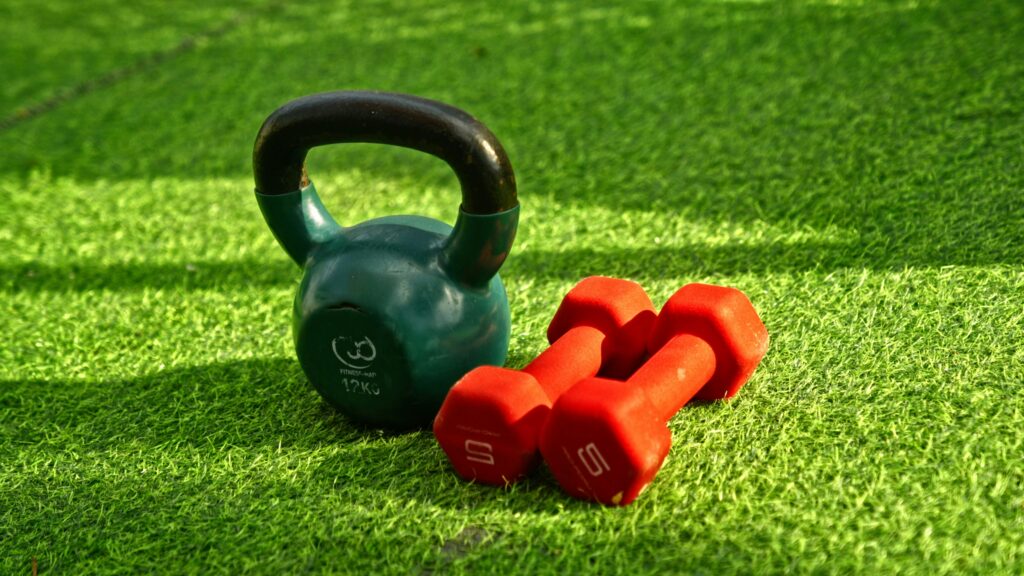Why Vitamin D Still Deserves a Spotlight
Key Roles in the Body
Vitamin D continues to be a crucial nutrient for overall health, with benefits that go far beyond just bones. Its influence touches on several systems, making it essential for daily wellness.
- Bone Health: Supports calcium absorption and helps maintain strong, dense bones
- Immune Function: Plays a regulatory role in immune system strength and resilience
- Mood Support: Research links low vitamin D levels with mood imbalances and symptoms of depression
Widespread Deficiency: A Hidden Concern
Despite its importance, vitamin D deficiency remains widespread. One of the main reasons? Not enough exposure to natural sunlight.
- Modern indoor lifestyles reduce natural sun exposure
- Sunscreen, though important, can limit vitamin D synthesis
- Those in colder or cloudier climates are especially at risk
Where to Get It
Meeting your vitamin D needs can be simple with a few intentional choices. You can get it from both dietary sources and safe sun exposure.
- Fatty Fish: Salmon, mackerel, and sardines are excellent natural sources
- Fortified Foods: Many milks, cereals, and plant-based alternatives are enriched with vitamin D
- Sunlight: Aim for short, regular periods of responsible sun exposure, ideally during peak daylight hours
If you live in an area with limited sunlight, a high-quality supplement may also be worth discussing with a healthcare provider.
Iron: Small Mineral, Powerful Impact
Iron is a vital mineral that supports essential functions throughout the body. Whether you’re an athlete, a busy professional, or just trying to maintain good health, getting enough iron can make a noticeable difference in how you feel and perform.
Why Iron Matters
Iron plays several important roles in the body:
- Oxygen Transport: Iron is a key component of hemoglobin, the protein in red blood cells that carries oxygen from your lungs to the rest of your body.
- Energy Production: Without enough iron, your cells can’t produce energy effectively. This leads to feelings of tiredness and sluggishness.
- Cognitive Function: Iron supports brain health and helps maintain concentration, memory, and mental clarity.
Signs You Might Be Low in Iron
Iron deficiency is more common than you may think. Here are some warning signs to watch for:
- Fatigue that doesn’t improve with rest
- Cold hands and feet
- Frequent headaches or dizziness
- Pale skin or brittle nails
- Shortness of breath during routine activities
If you recognize any of these symptoms, it may be worth consulting with a healthcare professional and checking your iron levels.
Understanding Iron Sources
Iron comes in two dietary forms, and the type you consume affects how much your body absorbs:
Animal-Based (Heme Iron)
- Found in red meat, poultry, and fish
- More easily absorbed by the body
Plant-Based (Non-Heme Iron)
- Found in beans, lentils, tofu, spinach, and fortified cereals
- Less readily absorbed on its own but still valuable when paired with absorption boosters
Boosting Iron Absorption
To get the most from iron-rich foods, try these strategies:
- Pair with Vitamin C: Foods like citrus fruits, bell peppers, and strawberries can significantly boost the absorption of non-heme iron.
- Avoid Calcium at Mealtime: Calcium competes with iron for absorption, so aim to consume high-calcium foods or supplements at a different time than iron-rich meals.
- Cook in Cast Iron Cookware: This can increase the iron content of certain foods, especially acidic ingredients like tomatoes.
Iron is essential, but balance is key. Too much iron can be harmful, so it’s best to aim for an intake that meets—but does not greatly exceed—daily needs unless otherwise directed by a health provider.
Micronutrients are the small players with big impact. These are vitamins and minerals your body needs in tiny amounts, but without them, essential functions start to break down. Think energy production, immune defense, mood balance, and focus. You don’t need much of them, but miss a few for long enough, and the system starts to show cracks.
Deficiencies don’t always announce themselves loudly. Fatigue, brain fog, muscle cramps, brittle nails, sleep issues — these are just a few signs something might be off. It’s easy to pass these off as stress or aging, but often, a gap in nutrition is hiding underneath.
Even clean eaters can come up short. Restrictive diets, chronic stress, poor absorption, or just the reality of nutrient-drained soil can all leave your body missing key elements. Bottom line: hitting your macros might keep you full, but it doesn’t always keep you fueled. Micronutrients are the part most people glance over — and it’s costing them more than they think.
Magnesium isn’t flashy, but it’s essential. It plays a central role in basic muscle function, keeps your energy production humming, and helps regulate stress responses. If your body feels drained or your nerves are always on edge, you might be running low.
You’ll find this mineral most reliably in leafy greens, nuts, seeds, and whole grains. Spinach, almonds, pumpkin seeds, and brown rice are solid bets. But here’s the thing—not everyone’s getting enough. People eating lots of processed or refined foods tend to miss out. And if you’re under constant stress, your body burns through magnesium even faster.
It’s not just about getting enough—it’s about making sure what you’re eating actually delivers.
Vitamin B12 might not get as much hype as other nutrients, but it’s doing serious behind-the-scenes work. It plays a key role in keeping your nervous system functioning, helps your body build healthy red blood cells, and is essential for proper DNA synthesis. Without it, things can go sideways fast—think fatigue, memory lapses, or even nerve damage over time.
Some groups are more at risk than others. Vegetarians and vegans often don’t get enough B12 through food alone, since it’s mostly found in animal products. Older adults can also struggle with absorption due to changes in digestion as we age.
If you eat meat, dairy, or eggs regularly, you’re probably covered. If not, look into fortified foods like plant-based milks or cereals—or consider a supplement. It’s one of those things where staying ahead matters more than playing catch-up later.
Zinc is one of those underrated essentials your body can’t skip. It’s involved in immune defense, helps repair skin, and plays a key role in healing wounds. If you’re low on it, your body tells you fast—slow recovery from cuts, more frequent breakouts, and hair that starts thinning or shedding more than it should.
The good news is it’s easy to get enough if you know where to look. Shellfish like oysters are zinc powerhouses. Red meat and poultry are solid options too. For non-meat eaters, seeds like pumpkin and sesame can help close the gap.
Bottom line: if you’re dealing with sluggish recovery or skin issues, zinc might be worth a closer look.
Iodine plays a quiet but critical role in the body. It’s the key to making thyroid hormones, which regulate everything from metabolism to muscle function. When iodine is low, the thyroid struggles, and that ripple effect can leave people feeling sluggish, unfocused, or worse.
Here’s the catch: trendy salts like pink Himalayan and kosher salt don’t contain much iodine. As more people ditch iodized salt for cleaner or more Instagram-friendly options, iodine levels are quietly dropping in the average diet.
The fix isn’t complicated. Bring back iodized salt in everyday cooking. Add seaweed—like nori or wakame—to meals now and then. And don’t ignore dairy, which naturally carries iodine, especially in milk and yogurt. The takeaway? A small shift in pantry habits can keep your thyroid, and your energy, firing on all cylinders.
Focus on Real Nutrition, Not Fads
Eat Whole, Varied Foods First
Trendy diets come and go, but one principle remains: real food matters. Instead of chasing the latest online health trends, prioritize meals made from whole, minimally processed ingredients.
- Choose a variety of colorful fruits and vegetables
- Incorporate lean proteins, whole grains, and healthy fats
- Limit ultra-processed foods and added sugars
Whole, nutrient-dense foods give your body what it needs to function properly, without the guesswork of trendy supplements or restrictive plans.
Know When to Get Tested
If you feel constantly fatigued, sluggish, or like your health is off-track, it might be worth getting tested for nutrient deficiencies. Many common symptoms are tied to low levels of essential vitamins or minerals.
- Talk to your doctor about possible testing
- Focus on common deficiencies like B12, vitamin D, or iron
- Use results to make informed choices about diet and supplementation
When to Work With a Professional
Supplements can help fill gaps, but they aren’t one-size-fits-all. If you’re considering adding supplements to your routine, it’s best to work with a qualified healthcare provider.
- Avoid self-prescribing based on internet advice
- A professional can recommend the right dosage and form
- Keep in mind that more isn’t always better when it comes to nutrients
Start with food, listen to your body, and get expert input when needed for sustainable, smart nutrition.
Choline flies under the radar. It’s not listed on most nutrition labels, but it plays a big part in brain development, memory retention, and liver function. The body needs it to build cell membranes and send signals through the nervous system. If you’re low on it, your brain and body feel it.
Even though it’s crucial, choline is often missing from everyday diets—and from most health conversations. That’s a miss. Especially since good sources of it aren’t hard to find. Eggs (especially the yolk), beef liver, and salmon pack a heavy choline punch. So if you’re looking to sharpen thinking, support your liver, or just cover your nutritional bases, it’s worth paying attention to this quiet MVP.
Consistency matters more than intensity. It’s not about hitting every food trend or obsessing over macros—it’s about showing up for your body day after day with simple, smart choices. A flashy detox or juice cleanse means little if your everyday meals are lacking.
The best strategy? Build meals that are naturally nutrient-dense. Think lean proteins, healthy fats, fiber-rich carbs, and plenty of color from vegetables and fruits. These staples deliver steady energy and help your system stay balanced without needing to overthink every bite.
If you’re looking to level up your plate, start small and stay steady. For more on what that actually looks like, check out The Ultimate Guide to Building a Balanced Meal: https://shmgmedicine.com/the-ultimate-guide-to-building-a-balanced-meal/
Small things add up. That’s the story with micronutrients—vitamins, minerals, trace elements. If your content diet is low on them, even if everything else looks solid, you’ll feel it eventually. Lower energy, mental fog, small health dips that become long-term problems.
For vloggers, this applies directly to performance. A bit more magnesium or vitamin D can affect mood, focus, and stamina across those long days of shooting, editing, and managing comments. You don’t need a hyper-strict plan or daily spreadsheets of everything you eat. What you need is awareness. Pay attention to the basics, tweak what’s missing, and keep it simple.
Think less about perfection and more about consistency. A better-informed plan trumps a complicated one. When the foundation is strong, the rest follows.



